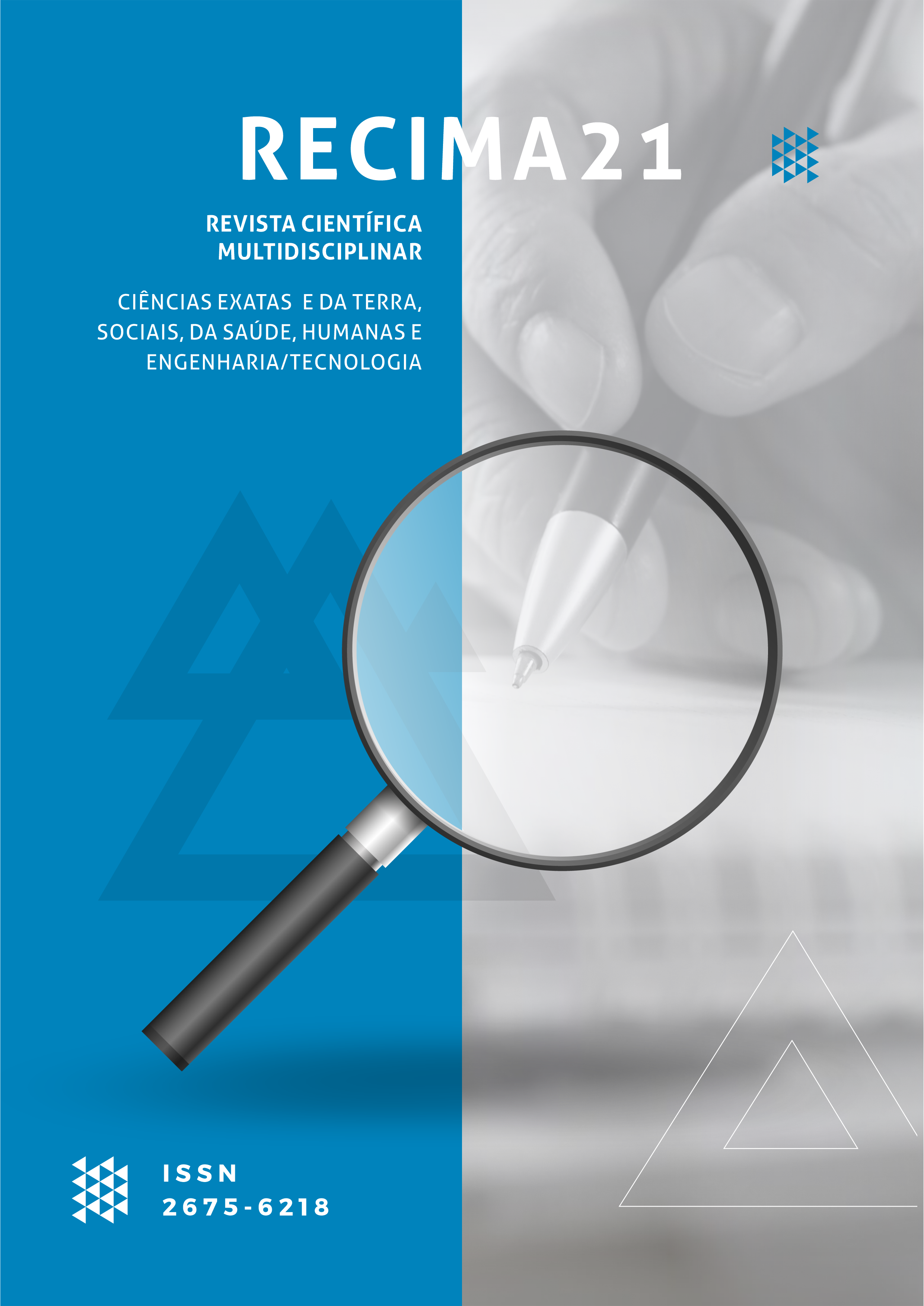DESENVOLVIMENTO ÁGIL DE SOFTWARE
DOI:
https://doi.org/10.47820/recima21.v3i12.2157Palavras-chave:
Software. Desenvolvimento ágil. Benefícios. CompetitividadeResumo
Ágil é uma abordagem interativa para o desenvolvimento de software que ajuda as equipes a entregar o produto mínimo viável, promover uma melhor colaboração e lançar software de maior qualidade. O objetivo do trabalho foi explorar como esta abordagem tem auxiliado as empresas no mercado atual, assim como tem descrito a literatura de desenvolvimento tecnológico da informação frente às necessidades do mundo globalizado. Trata-se de uma revisão da literária com pesquisa em livros e artigos científicos das bases de dados da Scielo e Google Books. O resultado mostra ganhos relevantes para a competitividade das empresas, com o uso da metodologia Ágil, que adiciona valor ao negócio, flexibilidade, gestão de tempo, liderança remota, agilidade, geração de mapa de fluxo de valor, gestão inteligente, comunicação eficaz, transparência e engajamento dos colaboradores, eliminação da necessidade de adaptações frequentes, entre outros. Conclui-se que os benefícios da metodologia Ágil estão na sua capacidade de ajudar as equipes em um cenário em evolução, mantendo o foco na entrega eficiente de valor comercial. A cultura colaborativa facilitada pelo Ágil também melhora a eficiência em toda a organização, pois as equipes trabalham juntas e entendem suas funções específicas no processo.
Downloads
Referências
ARBULO-LOPEZ, P. R. DE; FORTUNY-SANTOS, J. An accounting system to support process improvements: Transition to lean accounting. Journal of Industrial Engineering and Management, v. 3, n. 3, p. 576–602, 2010.
CARVALHO, B.V.; MELLO, C.H.P. Aplicação do método ágil scrum no desenvolvimento de produtos de software em uma pequena empresa de base tecnológica. Gest. Prod.; v. 19, n. 3, p. 1-10, 2015.
FULLERTON, R.R.; KENNEDY, F.A.; WIDENER, S.K. Management accounting and control practices in a lean manufacturing environment. Accounting, Organizations and Society, v. 38, n.1, p. 50-71, 2013.
GOMES, A.F. Agile Desenvolvimento de software com entregas frequentes e foco no valor do negócio, São Paulo: Casa do Código, 2013.
LAKATOS, E.M.; MARCONI, M.A. Fundamentos de Metodologia Científica. São Paulo: Atlas, 2017.
MAX, B.R.; PRESSMAN, R.S. Engenharia de Software uma abordagem profissional. 8º edição, São Paulo: AMGH, 2016.
MORAES, M.V.G. Sistema de Gestão Princípios e Ferramentas. São Paulo: Erica, 2015.
MOURA, D.; WILDT, D. Extreme Programming: práticas para o dia a dia no desenvolvimento ágil de software, São Paulo: Casa do Código, 2015.
RICHARD, I. et al. Agility in Audit: Could Scrum Improve the Audit Process? Current Issues in Auditing; v. 12, n. 1, p. 18-28, 2018.
RIGBY, D.; ELK, S. Ágil do Jeito Certo: Transformação sem caos. Rio de Janeiro: Benvirá, 2020.
RUBIN, K.S. Scrum essencial: um guia prático para o mais popular processo ágil. São Paulo: Alta Book, 2017.
SOMMERVILLE, I. Engenharia de Software, São Paulo: Pearson Education, 2011.
Downloads
Publicado
Edição
Seção
Categorias
Licença
Copyright (c) 2022 RECIMA21 - Revista Científica Multidisciplinar - ISSN 2675-6218

Este trabalho está licenciado sob uma licença Creative Commons Attribution 4.0 International License.
Os direitos autorais dos artigos/resenhas/TCCs publicados pertecem à revista RECIMA21, e seguem o padrão Creative Commons (CC BY 4.0), permitindo a cópia ou reprodução, desde que cite a fonte e respeite os direitos dos autores e contenham menção aos mesmos nos créditos. Toda e qualquer obra publicada na revista, seu conteúdo é de responsabilidade dos autores, cabendo a RECIMA21 apenas ser o veículo de divulgação, seguindo os padrões nacionais e internacionais de publicação.













